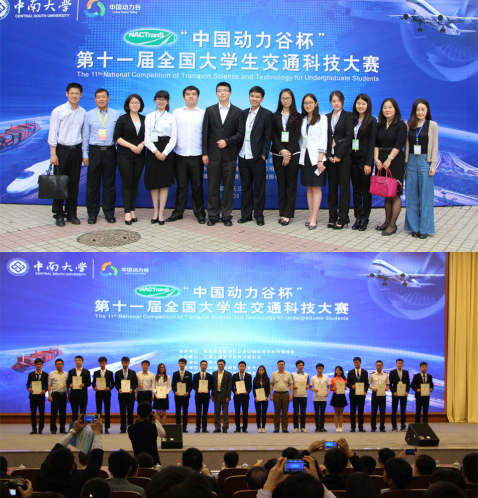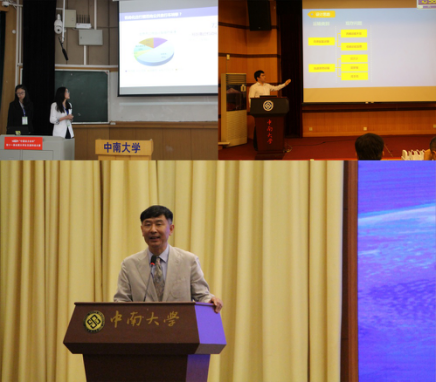In the beginning, BJUT recommended 4 projects based on the campus qualification trials. Finally, two of them advanced into the final. Going through the procedures including review of experts, on-site presentation and defense by the group, the project named “Public Bicycle Branch Setting Method and System based on the Multi-type Individual Trip Perception” by Ma Siyong, Zhang Jinmeng, Tianhe, Zhang Tiantian, and Peng Zhendong with the guidance of Bian Yang and Weng Jiancheng from Urban Transportation College won the National Second Prize; the project “The Conceptual Design of Motor Train Unit Passenger Cabin Rapid Replace Module System” by Lu Jiacheng, Zhou Xinchang, Zhao Liran, Liu Andi, and Li Danyang with the help of instructors Qu Yanrui and Han Yan won the National Third Prize.

The theme of the competition was “Low Carbon Transportation” and students came up with creative and diversified solutions in terms of hot issues and problems in the field of transportation, with diversified directions. The main theme of the competition was centered on rail transit refining design, from which 4 special topics were: transportation plans and management, transportation information engineering and controlling, transportation apparatus application engineering and railroad engineering. This competition showed students’ concern and solutions to modern transportation issues from various perspectives and benefited them a lot. The winning teams will get financial support from Chinese Power Valley. In the closing ceremony, Professor Guan Hongzhi from BJUT also Secretary-General of Communication and Transportation Directing Committee of Higher Educational Institution of Ministry of Education made speech on the competition works.

BJUT has taken part in the competition for seven years with the achievements of 3 first prizes, 8 second prizes and 8 third prizes, ranking Top in China Universities and Colleges. The whole competition was in good order with procedures of selection, professors’ guidance, rehearse report, selection list, specialist instruction and simulation defense with the method honed and perfected.
This competition, depended on the transportation science and technology, cultivated students’ scientific quality and teamwork spirit. BJUT teams came from majors like transportation engineering, civil engineering, industrial design, mechanical engineering and automation and software engineering. Participation in this competition enhanced the communication among various majors, boosted the academic communication of college students, and provided opportunities for the universities and colleges to cultivate high quality talents. Hereafter, BJUT will further support students’ after-class scientific activities, in order to develop students’ creative ability and hands-on ability.





